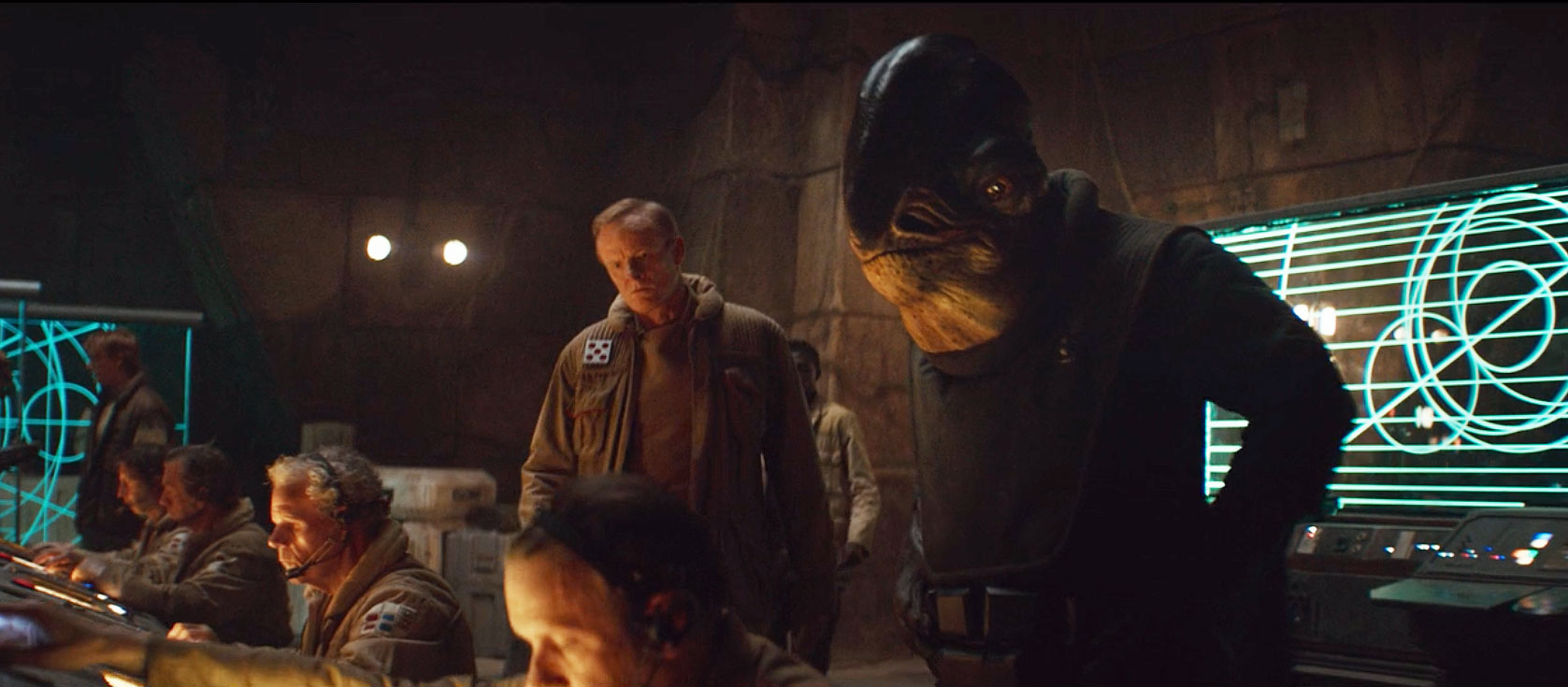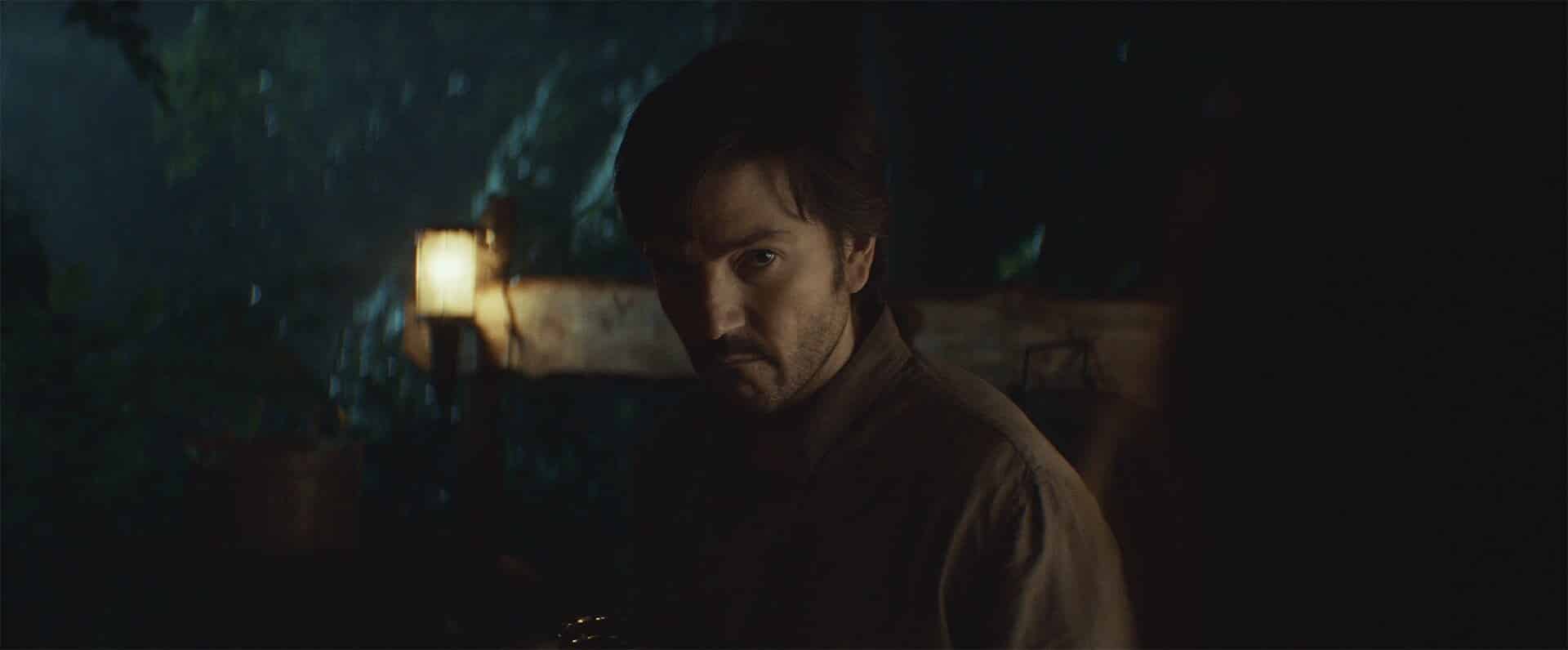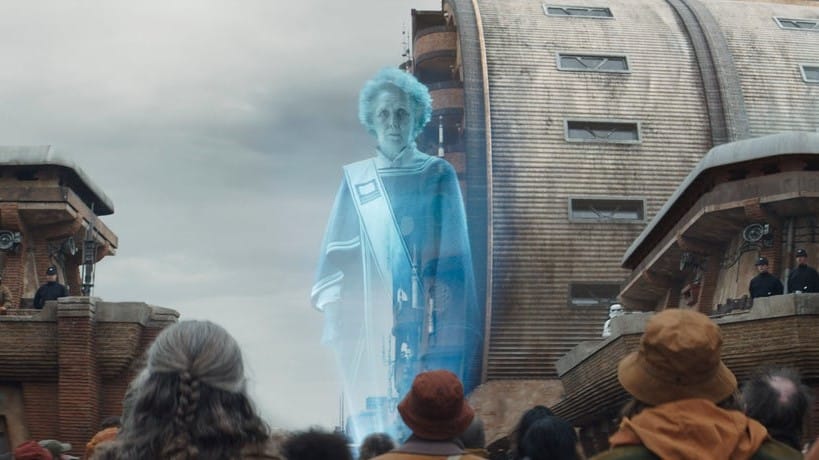It took us a bit to come to terms with our grief over the end of Andor, but here, at last, are 10 things we loved in Season 2 Episodes 10-12.
Suiting Up

The beginning of this three-episode arc and its conclusion both have parallel constructions, in that the arc opens with Luthen preparing to meet his fate by donning his “curator of antiquities” garb (his wig, his rings, his flowing robes) and features a sequence in the closing montage of Cassian donning the gear he’ll be wearing in Rogue One, where he meets his fate.
— Austin Gorton
Lonni Jung

Let’s pour one out for poor Lonni, the true secret hero of the Rebellion. Arguably Luthen’s most useful asset, he gave a heads up that Dedra was after Luthen’s network, made him aware of the Imperial focus on Ghorman, and ultimately delivered actionable intelligence on the Death Star, setting off a chain of events that culminates in its destruction, a chain that never would have been forged in time if not for Lonni. And for all that, he got a blaster bolt to the chest.
— Austin
The Horrors of War
Luthen Rael hides in a spacecraft listening to the unstoppable massacre of an unknown group of citizens, repeating the phrase “Make it stop,” over and over again. A young Kleya witnesses a Stormtrooper firing squad that no one has the power to stop kill a child not much older than herself. Luthen and Kleya take stock of the innocent lives they’ll take in the process of bombing Imperial tanks. The 10th episode of Andor’s second season doubles down on the realities of the horrors of war in ways that force you not to look away, mainly because you don’t see the worst of it. You HEAR it. Andor represents a masterclass in restraint since Gilroy and co. know that it’s just as, if not more, effective to see the traumatized characters who witnessed violence and can’t stop shaking than to show you the violence firsthand.
— Adam Reck
This is also a great example of doing more with less; with the budget tight (reportedly, the hospital set was almost going to just be one room before they scrounged up enough dough to expand it significantly), focusing on the impact of the horrors of war on one person via sound vs. showing the audience those horrors directly is a great way to both save money and let us fill in the blanks, with Luthen’s reactions to the sounds providing the necessary context.
— Austin
‘Two pieces of questionable provenance’
When Dedra confronts Luthen inside his shop, he tells her everything is real except for two things that are of “questionable provenance”: Dedra and Luthen himself, who are both playing roles at the start of the scene.
— Austin
Bombing Naboo
Writer Tom Bissell has said that when Luthen and young Kleya make their first act of open rebellion against the Empire by bombing an Imperial convoy, they do so on Naboo because it’s the Emperor’s homeworld and Luthen wanted to open his campaign by making it especially personal to Palpatine.
— Austin
‘I can’t save you, Leo’

This line of dialogue, which Krennic quietly utters to Partagaz once the magnitude of Dedra’s mishandling of Luthen becomes clear, is like an entire series of stories packed into five words. It immediately implies a deeper relationship between the two men. Are they friends? Did they come up through fascism school together? Are they like Jack Nicholson and JT Walsh in A Few Good Men? Was Partagaz Krennic’s mentor at one time, only to see his student surpass him in the Imperial hierarchy?
We’ll never know, but the fact that just one line of dialogue can imply such a deep relationship is a testament to the strength of this series’ writing.
— Austin
Admiral Raddus

Human actors may age or be unavailable, but fish-man puppet-heads are forever.
— Austin
Coming Home

The fact that Luthen was indeed right about not making it out of the revolution alive while Kleya managed to make it to Yavin and realize that, for as much as the place was hostile toward Luthen (and Luthen toward it), it was still very much a place that existed because of the work she did with Luthen and a place where she could be welcome, is a great example of walking the balance between a dark ending and a happy one.
— Austin
Maarva’s plants
Almost as much of a heartbreak as the closing image of the child Cassian will never know is the way he pauses to water his plants before leaving his treehouse on Yavin to head out on the mission that will end with his death on Scarif. It’s such a “regular” thing to do, underscoring how much Cassian departing to meet Tivik after rescuing Kleya was just another day to him and not the first day of the rest of his life, which makes it all the sadder.
— Austin
Terry Kath – Tell Me

In 1977, George Lucas made a science fiction movie riffing on the media he liked both at the time and growing up. In the years that followed, he has come to view the films as engaging with the then-current Vietnam War, with our heroes acting as kin to the Vietcong to the evil empire of America – further emphasizing this with a trilogy of prequel films that move the political nature of the franchise to explicit text. This approach has several flaws to its reading, much in the same way Stan Lee’s post hoc facto readings of X-Men comics and their relationship to the Civil Rights Movement tend to be rather flawed.
Andor, then, is the realization of that vision. If The Last Jedi is the farthest one can go while remaining within Lucas’ singular vision, Andor is what happens when one surpasses that vision and engages with the stated claim wholeheartedly. The revolutionary spirit beating deep within a franchise that will probably curdle into nonsense fanservice and gibberish pretending to be narrative once it has been departed. If we were only going to get one of these, I’m glad we got this one.
— Sean Dillon







